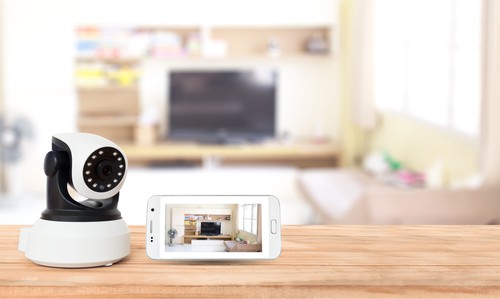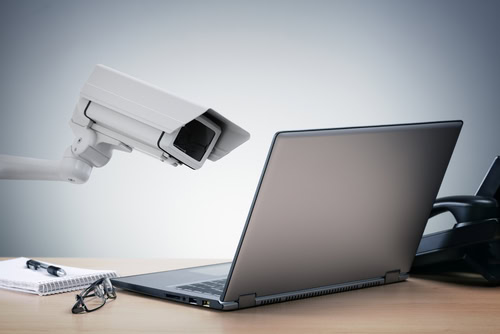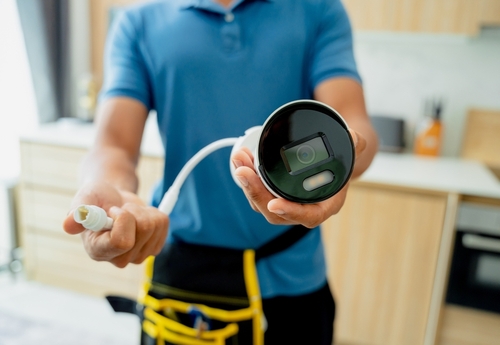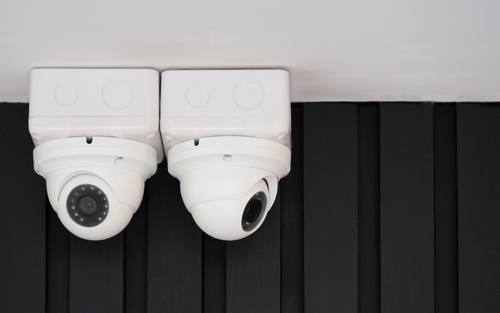
Why You Never Install CCTV In Toilets In Singapore
September 9, 2019
How To Setup CCTV For Retail Outlets
September 9, 2019What Is The Difference Between IP And CCTV Camera?

If you are a homeowner or if you own an office, you are probably considering the installation of a security system that incorporates either IP or CCTV monitoring methods. This is good news since both types of system offer many advantages over those that might just indicate a problem without showing the event as it happened. With either type of camera setup, you can not only see what happened, but the presence of such systems can also act as a deterrent to such incidents.
So What’s The Difference Between IP and CCTV Cameras?
The principle difference between IP and CCTV cameras is how they function. A CCTV camera sends the signals that it records over a coiaxel cable to a recording device. the primary disadvantage of a CCTV system is noise, that unwanted residual signals that most often shows up as “snow” in a video signal. Making matters worse, as a signal is copied and recopied, transmitted, or otherwise electronically processed, the signal gets worse, degrading both the audio and video of the signal as it is transmitted. It is also important to understand that recovering this signal is impossible since there is no way to determine at which stage a given level of noise is introduced.
An IP camera system, on the other hand, sends the digital data that is recorded over the Internet or a computer system and stores the data on hard drives. These digital signals can be transmitted, stored and processed without introducing noise into the system at any given point in the process. Another important point that should be remembered is that even though the term IP camera is often used, the reality is that they are in reality mega pixel and high definition cameras. the quality of the signals transferred over these networks is usually increased as they are sent since there is an increase in the amount of data that can be collected and stored in the process. The data that is compressed as a result gives way to a higher quality of signal and will display an image at a higher resolution than with CCTV capabilities.
Until a few years ago, CCTV camera systems were the standard to which all industries aspired. As technology has advanced, however, IP systems have taken over with the capabilities that they have over CCTV systems.
Display Wherever You Are
Most people agree that the primary benefit of IP systems over CCTV systems is the ability that the former allows users to monitor whatever is being observed over the Internet. Simply stated, an IP system allows users to see a live video of whatever they are monitoring wherever in the world they are. It is simply a matter of connecting to the Internet and accessing the tools that are allowed by the camera. You could think of this as a camera that you have an individual phone number for. Not only that, but the signal quality is usually excellent since there is no noise introduced over the system as it travels from one location to the other. It is true that the same objective can be achieved with a CCTV system, but even to receive a lesser quality of image, you have to use additional software and hardware components that make it possible.
Recording Recordings
Another important reason to have IP or CCTV capabilities is the ability to record and keep copies of those recordings for a variety of purposes. For purposes of security, for example, many users count on being able to record the happenings of a given location for future reference. Unfortunately, in addition to noise that can accumulate on CCTV recordings, time can also help diminish the quality of those images. By contrast, the images provided by IP cameras can be saved with several methods that have proved themselves far more durable over time than CCTV methods. IP methods can be stored on CDs as well as other digital methods that can be kept in different locations for safety and security.
Practical Considerations
Besides the technical points that are outlined above, there are several important technical considerations when comparing IP and CCTV systems. These include expense, lighting, distance, clarity and projection speed.
* CCTV systems, for example, are tried and true, but they are also old. In fact, they are about 50 years old, to be exact. As a result, CCTV cameras are usually considerably less in cost than IP cameras. That said, IP cameras are much easier to install, and they feed the image directly into the web server, so any wiring that you would need for such a system is probably already there, especially if you have an Internet connection.
* Lighting is also an important consideration when choosing between IP and CCTV systems. Simply, you can’t see what isn’t light enough. CCTV cameras perform very well in different levels of light, whereas an IP camera is best when there are well lit conditions present.
* CCTV systems perform well in light, but whenever distance comes into play, their quality quickly diminishes. IP cameras, by contrast, are better at giving a clearer image of distant subjects.
* If a clear image is important to you, you should seriously consider IP cameras for your system. This is one of the primary reasons that IP camera systems are so much more expensive than CCTV systems. Just as digital cameras provide better images because of pixel numbers, so do IP cameras.
* Finally, the projection speed of a CCTV image allows users who are wired into a system to see those images. With an IP camera system, an image can be transmitted either hard-wired or via wireless systems to anywhere in the world.
The bottom line in all of this is up to the homeowner or business owner to determine which system is best for their application. The best way to approach solving this issue is to sit down with a consultant who specializes in these systems and recommending them to clients. Any reputable company will have representatives who can advise you on which will fit your needs better, not just at a higher price. Before you make a decision as to which to buy, get all of the information you can, compare, and shop around. The chances are good that you will come up with the best camera solution that fits your needs most closely.



